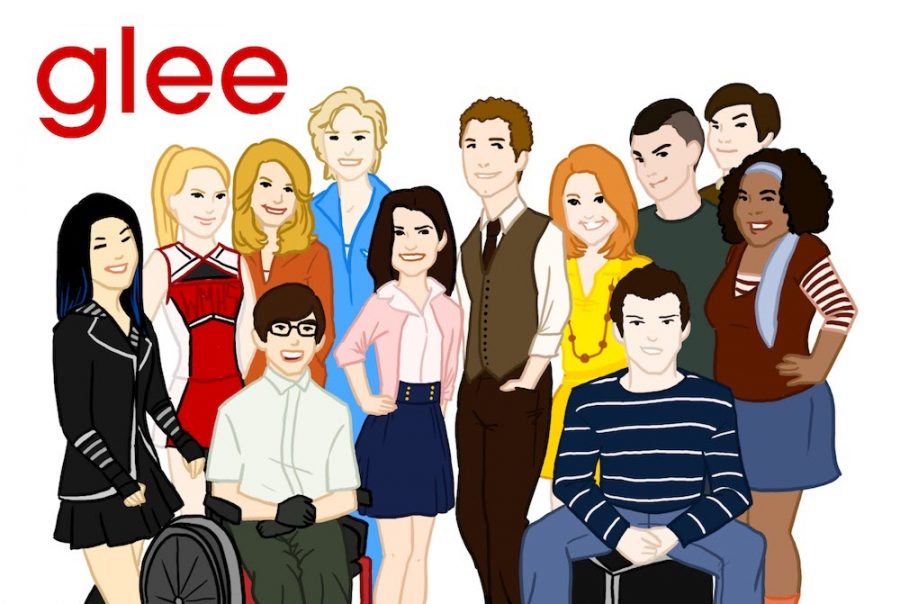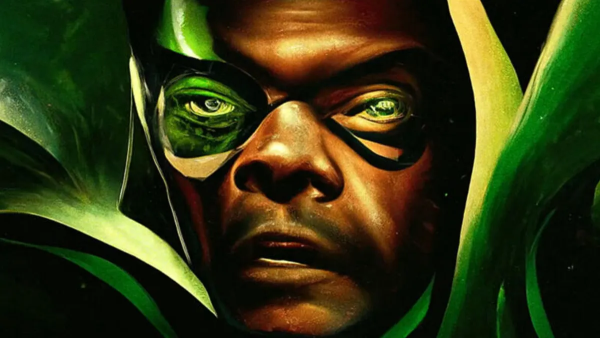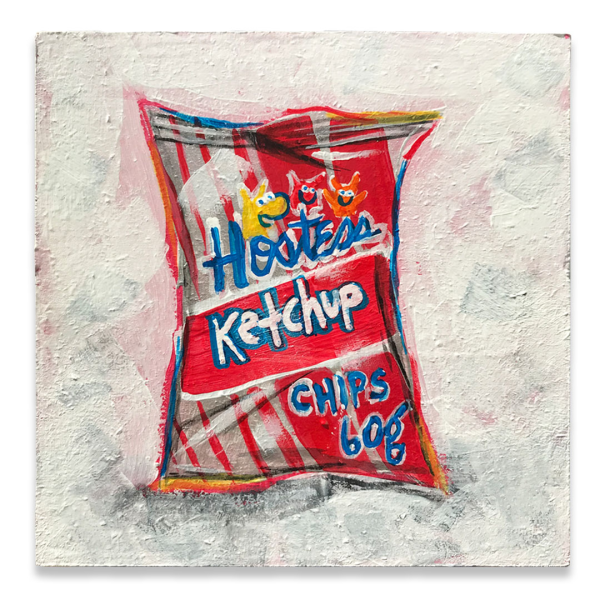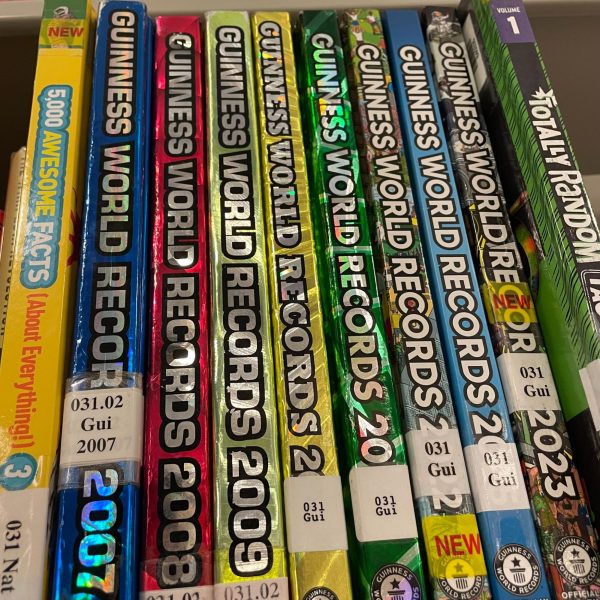And here’s what you missed on Glee…
The Fox Network TV show “Glee,” a 6 season-long, musical teen drama about high school is a stunning example of a show that has done everything incorrectly. Don’t get me wrong, I think it is a fantastic show as a whole, but it is impossible to ignore the problematic content that is the show.
One aspect that I would praise “Glee” for is their diversity. In most forms of media, representation and diversity is an uncommon occurrence, especially in 2009— when “Glee” first aired. For “Glee” to make a noticeable effort to include such a wide variety of people from different backgrounds is exciting. “Glee” features recurring characters that represent different races, sexualities, gender identities, physical and mental abilities, and financial backgrounds. On paper, “Glee” is an overwhelmingly diverse show, but their execution is a different story. For one, despite having an incredibly diverse cast, all of their leading characters are white straight cisgender people. While their diverse cast featured many different types of people, most of them fell into a played-out stereotype or trope. The writing reduces these characters down to a familiar stereotype that further reinforces that minorities are all the same. For example, Black characters like Mercedes and Unique hardly get screen time and lines in the show. When they do, their contribution is more often than not, snappy one-liners using AAVE (African-American Vernacular English). Another example of a character being reduced into a stereotype is Tina Cohen-Chang. Besides the fact that the only two asian characters both have the last name Chang, Tina is a textbook example of the “rebellious asian” stereotype that is entirely overdone. Her entire personality is based around having dyed hair and dating the other asian character, Mike Chang. Like Mercedes and Unique, Tina and Mike have almost no lines in the show and hardly ever sing, the one exception being Gangnam Style by Korean artist, PSY, of course. The writers went out of their way to play into the racial stereotypes but couldn’t be bothered to address the real racial and cultural depth that these characters bring.
Another huge issue is that the show included many different types of characters that are queer, disabled, transgender, etc, but did not cast actors that are queer, disabled, transgender, etc. Casting directors are not new to white-washing BIPOC roles in Hollywood so this does not come as a surprise to me, but it is entirely disappointing nonetheless. Some examples of this offense is Artie Abrams, Blaine Anderson, and Coach Beiste. Artie Abrams, a character who uses a wheelchair in the show, is played by Kevin McHale, a non-disabled person. Blaine Anderson, a gay character, is played by Darren Criss, a straight man. And finally Coach Beiste, a character who transitions from female to male in season 6, is played by, you guessed it, a cisgender woman, Dot-Marie Jones! I have nothing against these actors, I love Darren Criss, but whose idea was it to cast a cisgender woman to play a transgender character? Trans, gay, and disabled actors are alive and well and are much more deserving of these roles than actors who have no personal tie to these identities. In fact, by casting straight, cis-gender, and non-disabled actors to play these roles, the show is denying opportunities to actors that are actually gay, trans, and/or disabled.
The bottom line is: this show was written by white people, for the average white person (cisgender, straight, not disabled), meaning it lacks the nuance and depth that give the rest of the characters who don’t fall into that category a one-dimensional persona and gets away with it. If the show prioritized a wider target audience it should have put more thought into how they portrayed and cast the minority characters.
We all understand that shows about high school are highly exaggerated; none of us are actually in our 20s, we aren’t all doing drugs and having sex, we aren’t all enemies either, we’re a community at Bothell. Even knowing this fact, things on “Glee” were taken to the extreme.The relationships between teachers and their students on “Glee,” specifically Mr. Shue’s relationship with the students of Glee Club, were highly inappropriate. While it is understandable that a music teacher would become close with students as music is meant to connect people, the relationships formed between Mr. Shue and his students were not okay, not to mention the fact that he was also too dedicated to the club. In the first episode of the show, Mr. Shue plants drugs on Finn and says that he won’t say anything if Finn joins Glee Club; this should not have been tolerated in any way. Although this makes for good television, this interaction sets a bad example for teachers and students. Similarly to this situation, another plot line involving alcohol was featured on the show. “In the alcohol episode at the end when he gave them all his number, like ‘if you ever fall off, I’m here’… I thought that while that is wildly inappropriate… that dude would get fired… in terms of the story sense, I love it,” Jack Edwards (‘22) said on the topic. After this ordeal, the show continued on and Mr. Shue was just getting closer and closer with his students. “He was very caring towards them and tried to understand them at least,” Janelle Solquillo (‘22) says. Even acknowledging the ways in which he supported his student, he still knew intimate details about their lives, he performed inappropriate songs with them during school as a way to help them get excited, and brought in friends who turned out to be bad influences on the kids. Rachel even began to develop a crush on Mr. Shue that was so strong she serenaded him while he gave her a ride home, which was inappropriate in itself. Sue Sylvester from the start was the only one weirded out by Mr. Shue’s relationship with his students, but she wasn’t the best person to judge as her relationship with her Cheerios, while not inappropriate in the same way, was on the brink of abuse.
Being a show about high school life, I was curious to see how realistic it is to real life and life at Bothell. “They went out of their way to make exaggerated bullying but at the cost of realism” says Edwards. At Bothell High School, people are not bullied to the violent extent of students at McKinley. People don’t throw cherry slushies in other people’s faces or send their competition to crack houses or take-in the waist of someone’s costume with the intention of causing an eating disorder. That being said, Bothell is no stranger to bullying or cyberbullying, “there’s a lot of people that judge you for being in band, that’s why I quit” Solquillo tells me, but it has never reached the extreme level of bullying that is displayed on “Glee.” Although “I feel like there’s a lot of judgement in ‘Glee’ for being who you wanna be,” Solquillo says. While Bothell doesn’t have a show choir, we do have a choir, multiple in fact, and an improv team. Even Edwards, a member of Bothell’s Chamber choir and Bothell’s improv team, the Mighty Imps, says that he has “never heard of a show choir in my life… I wish they had a choir instead of a glee club.” One similarity that the show has to Bothell is the singing and choir culture. “In the scenes where Rachel would have a hard time accepting that she wasn’t the best all the time, I think that they nailed that because in choir there are some BIG egos and there are some people that will not back down… a lot of singers’ egos are very delicate,” Edwards says.
I believe that everyone working on “Glee” had good intentions and ideas, but things were not executed the way they should have been. There were so many storylines that were mainly for shock value or made no sense for the characters that had already been created and almost none of these storylines were fully picked up or given the attention they needed. The first storyline like this was with Quinn’s pregnancy; and while it was smart of “Glee” to bring attention to the fact that some teenagers do in fact get pregnant, the storyline didn’t make much sense for the character that Quinn was. She was an evident hater of Finn and Rachel being in Glee Club together, so in order to keep anything from happening between them, she joined. She was also president of the celibacy club and an avid Christian. Knowing all of this, it makes no sense that she cheated on Finn with his best friend and got pregnant. Storylines that were mentioned briefly and then never brought up again or didn’t get the attention needed for important topics were frequent, like Sam’s homelessness when he joined the show, or the school shooting episode where everyone thought they were going to die, when in reality Becky had found Sue’s gun in her office and dropped it.
A recurring storyline that the writers loved to include out of nowhere, eating disorders. In terms of accuracy, Edwards says “they honestly really did a good job with the anorexia aspect because that’s how it happened for me… I could really relate to that.” However we both agreed that the way it was later handled, and how the character recovered, was not realistic at all. The character struggled with her eating disorder for multiple episodes and then was “magically cured” out of nowhere. When in reality, eating disorders are much more complex and difficult to recover from. “I really didn’t see anyone say ‘no you’re beautiful, you are fine the way you are.’ I don’t remember a lot of scenes like that when that is honestly one of the most important things that you need to hear” Edwards tells me. The show perpetuated the harmful belief that many people who struggle with ED or addictions struggle are on their own in their recovery. “There wasn’t a lot of support… they usually had to figure it out themselves” Edwards says, “It’d be really nice to put out that message, ‘people care about you,’ ‘if you see someone going through something, go care, go help them’” he continues. The show opened up a lot of difficult topics but failed to address them in their entirety. The show lacked the damage control that is required to include topics like eating disorders without triggering and hurting the audience.
While this show had its issues and problematic storylines, if we take into consideration who the audience is and the time period it was written in, this show is actually pretty good. We, Tara and Kendyll, spent so much time and effort writing our critiques on “Glee” during our finals week of junior year only because we know its true potential. It briefly touches on a lot of important topics that are difficult to address, so if the purpose of the show was to open the doors to those conversations, we would say that they achieved that. “Glee” as it is, was arguably a cultural reset but if it was redone today, it would be legendary.







